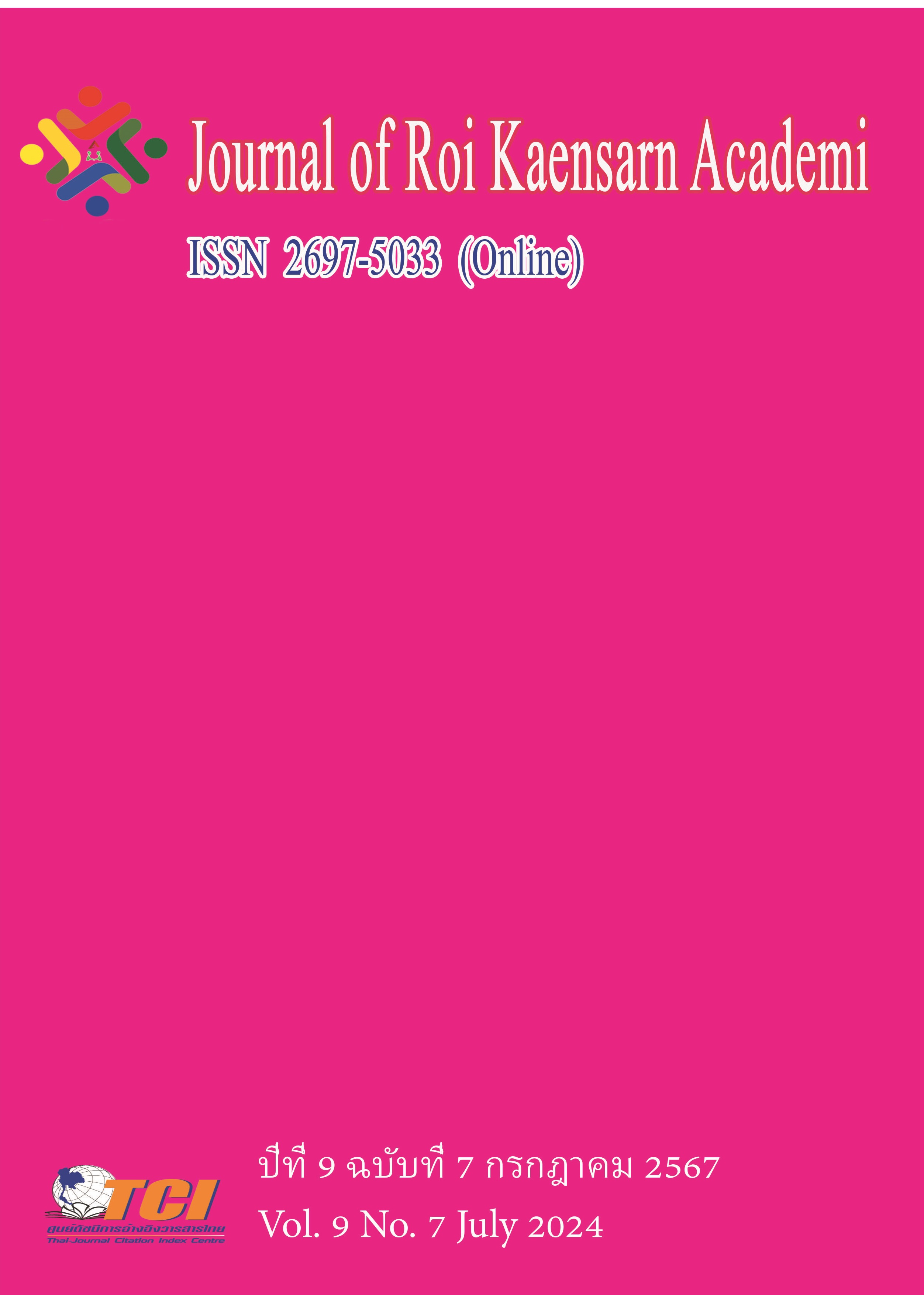Driving Sustainable Urbanization: Analyzing the Roles of Smart City, Network Partnership, and Administrations of Khon Kaen Municipality
Main Article Content
Abstract
The objective of this research is to 1) analyze the factors influencing sustainable urbanization, including smart city, network partnership and administration, The research was quantitative research, with quantitative research involving a sample of 400 people collected in Khon Kaen Municipality. Statistics used in data analysis include frequency values, percentages, correlation and multiple regression analysis.
The results showed that three (3) primary variables, namely Smart City, Network Partnership and Administration were moderately to highly positively correlated with the dependent variable (Sustainable Urbanization). Smart City factors in public sector management and economic; government and industrial dimension in Network Partnership, while lastly independent factor which are teamwork and strategy in Administration dimension can predict sustainable urbanization statistically significantly at the .001 level. The influence of variables predicts the dependent variable by 75 percent. Policy recommendations for sustainable urbanization include; strengthening education systems to provide learning for all such as support for vocational education and modern training. In order to prepare the future of work and industry for the urban population, activities should be organized to make people see the importance of natural resource and environmental management, and social and community activities should be encouraged to strengthen relationships between individuals and communities.
Article Details
References
Athit Phutthithaksaeng. (2023). Administration and Sustainable Development Affecting the Life Quality of People in Nakhon Ratchasima Province. Journal of Nakhon Ratchasima College of Humanities and Social Sciences, 17 (1), 316-316.
Atitaya Sukprasert. (2010). Vision of a Livable City and Development Strategies of Civil Society in Pak Nam Prasae Subdistrict Municipality, Klaeng District, Rayong Province. Chanthaburi: Faculty of Local Administration, Rambhai Barni Rajabhat University.
Bastidas, V. &. (2017). Cities as Enterprises: A comparison of Smart City Frameworks based on Enterprise Architecture requirements. In Alba E., & Chicano F., & Luque G. (eds). Smart Cities. Smart-CT 2017. Lecture Notes in Computer Science, vol 10268. Springer International Publishing.
Brahmakappa, A. (2021). The Management and Model of Smart Cities from a Buddhist Perspective to Enhance the Quality of Life in Terms of Morality and Ethics in Villages and Communities in Nakhon Sawan Province. Journal of Buddhist Anthropology, 6 (11), 35-47.
Campbell, T. (2013). Beyond smart cities: how cities network, learn and innovate. Routledge.
Chaiyut Tanchai, Waranyu Senasu, Thianthawat Srijaingam, and Ekachai Sumalee. (2019). Action Research Project on Local Development Towards a Sustainable Smart City, Phase 2 (Smart City). Final Research Report. Bangkok: King Prajadhipok's Institute, College of Local Administration Development.
Dominic M. Mezzanotte, D. M. (2012). Enterprise Architecture: A Framework Based on Human Behavior Using the Theory of Structuration. Software Engineering Research, Management and Applications. SCI630.
Doshi, V. &. (2011). Impact of inter-organizational relationships on organizational learning. Working Paper. Indian: Indian Institute of Management Ahmedabad-380-015.
Ekstedt, M. (2004). Enterprise Architecture for IT Management: A CIO Decision Making Perspective on the Electric Power Industry. Department of Industrial Information and Control Systems. Stockholm: KTH, Royal Institute of Technology.
Department of Provincial Administration. (2000). Sustainable Development. Bangkok: Ministry of Interior.
Dueanphen Khampuang, Suphaporn Thaipakdee, & Phanchit Seenieng. (2016). Process of Building Sustainable Agro-tourism Networks in Pak Chong District, Nakhon Ratchasima Province. Thai and International Tourism Journal, 12 (1), 65-90.
Digital Economy Promotion Agency. (2020). Smart City. Bangkok: Special Projects and Digital and Innovation Development Center.
Ekachai Sumalee and Chaiyut Tanchai. (2019). Smart City: Basic Concepts and Operating Systems for Cities in the Digital Age. Bangkok: King Prajadhipok's Institute.
Giffinger, R. &. (2014). Smart Cities – europeansmartcities 3.0. Vienna. Online. Retrieved September 3, 2023, from http://www.smart-cities.eu/?cid=2&ver=3
Giffinger, R. &.-M. (2007). Smart Cities: Ranking of European Medium-sized Cities. Vienna: Centre of Regional Science.
Han, M. J. N., & Kim, M. J. (2021). A critical review of the smart city in relation to citizen adoption towards sustainable smart living. Habitat International, 108, 102312.

